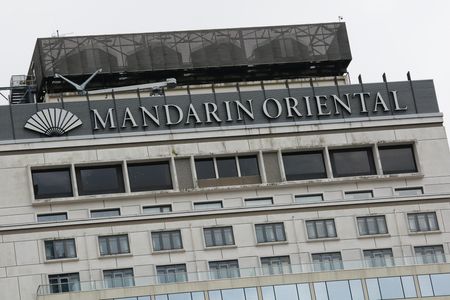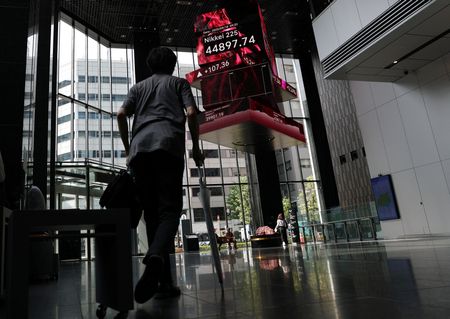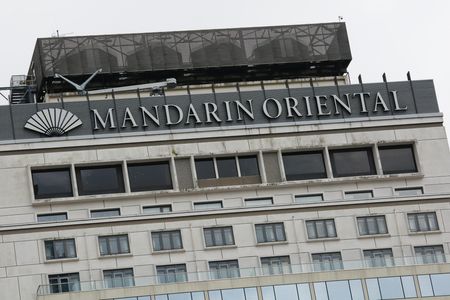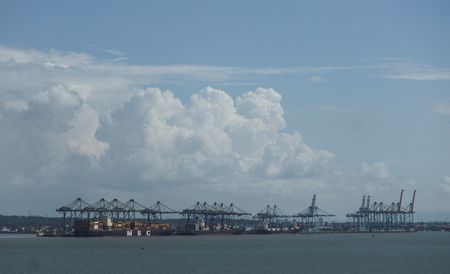BEIJING (Reuters) -China’s September fiscal revenue growth picked up from August, finance ministry officials said on Friday, vowing to start issuing 2026 bonds early to give the economy an extra boost.
The 2.6% increase in fiscal revenue last month quickened from 2% growth in August, despite signs the economy may be losing some momentum.
For the first nine months of the year, fiscal revenue grew 0.5% year-on-year, Tang Longsheng, an official from the finance ministry, said at a press conference in Beijing.
“This year, the Ministry of Finance will continue to frontload the bonds from 2026 new local government debt quota,” said Li Dawei, an official from the ministry, at the same press conference. This type of advance fundraising can give spending a jumpstart heading into the new year and is a common practice by Beijing.
The ministry will continue to help local governments to resolve their hidden debts and pay outstanding debts owed to companies, to ensure more stable local finances, Li added.
The central government allocated 500 billion yuan ($70.17 billion) in local debt quotas recently to help resolve local debt issues and help repay company arrears, said Li.
According to state media CCTV on Tuesday, the economic recovery and improvement in corporate operations have driven growth in tax revenue.
Tax revenue grew 6.9% in the third quarter, much faster than the 2.6% expansion in the second quarter, CCTV said.
Fiscal expenditure was up 3.1% in the January-September period, unchanged from the first eight months, Tang said.
Analysts expect a key meeting next week of the Communist Party of China to map out the country’s next five-year vision that prioritises high-tech manufacturing in its quest to upgrade its sprawling industries and project global power as its rivalry with the U.S. intensifies.
Beijing has rolled out modest support measures this year to preserve policy space for future shocks, taking advantage of resilient exports despite U.S. tariffs, as well as strong stock markets. But household consumption has remained weak, and industrial overcapacity is fuelling deflationary pressures, weighing on corporate profits and the job market.
Investors are also awaiting third-quarter gross domestic product growth and key September activity data on Monday.
A Reuters poll showed GDP growth in July-September is forecast at 4.8% year-on-year, the slowest pace since the third quarter of 2024, and down from the 5.2% rate clocked in the second quarter.
($1 = 7.1256 Chinese yuan renminbi)
(Reporting by Kevin Yao and Liz Lee; Writing by Ellen Zhang; Editing by Clarence Fernandez and Kim Coghill)










